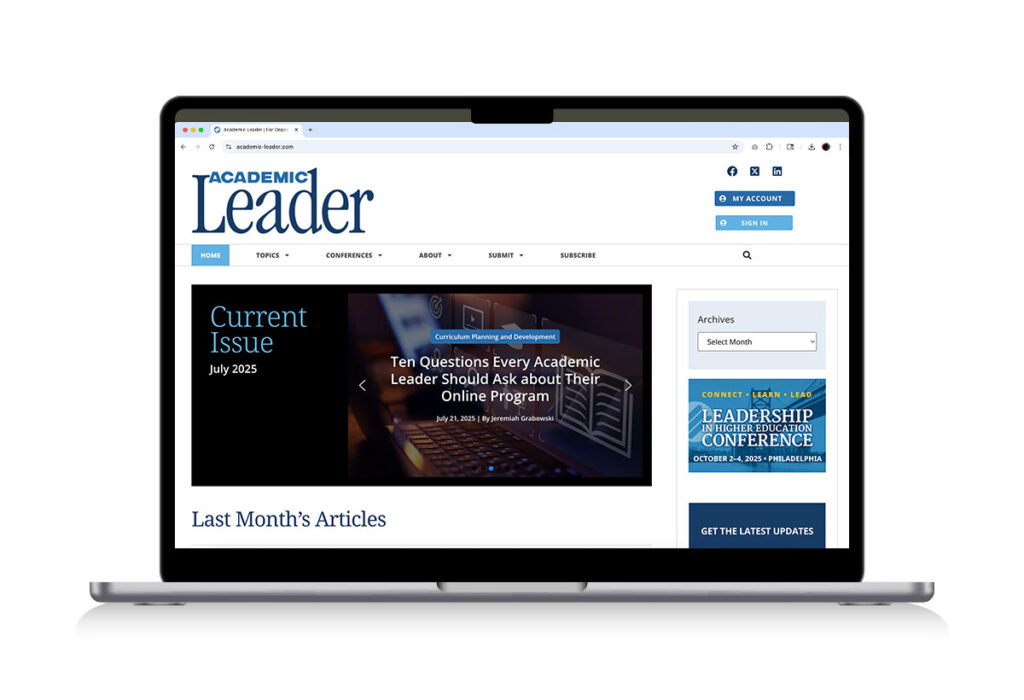Nibbled to Death by Ducks
“Nibbled to death by ducks.” The phrase, though nearly three centuries old, is still remarkably apt for the role of the department chair today. Our jobs are filled with little nibbles taken out of our time and attention; no individual nibble may be all that significant, but the accumulation of...
When Colleagues Are Brats
Have you ever left a meeting in which you were trying to work with some colleagues on aligning the curriculum for a course that several of you teach, and decided that the best (printable) word to describe a colleague was "brat?" Does it seem like there is someone in your...
Why All Evaluations Are Not Alike
Imagine that one day you come into the office and a fellow administrator asks you to review the following language from the draft of an evaluation that he or she is writing about a faculty member.
Weight Management for Universities: Evaluating Academic Bloat
Historically, new academic programs have often been introduced by several mechanisms. An energetic faculty member is inspired to create a new major, a donor bequest stipulates the development of an interdisciplinary institute, a president mandates a “visionary” curriculum, or a dean or provost responds to a sudden market opportunity.
“But I Hate Asking for Money”: Development Tips for Academic Administrators
Despite the widespread expectation that academic leaders participate in fundraising at their institutions, many administrators feel poorly prepared for development work. After all, they rose to their positions because of their success as teachers and scholars, their record of good management skills, and their ability to mix attention to details...
Making Soup from Rain: My Year as Provost
A year ago I found myself serving as my university's interim provost. After six years as a dean, I had been enjoying a sabbatical, a quiet time of writing, reading, and preparing for re-entry to teaching. I had grown tired of the administrative life and its seemingly endless series of...
A Centralized Approach to Supporting Experiential Learning
Wartburg College in Waverly, Iowa, has a centralized office to foster experiential learning across disciplines. This administrative structure, which grew out of a Lilly Vocation Grant, offers several advantages over more traditional, decentralized support structures.
Can a Capstone Course Try to Accomplish Too Much?
Kristi Upson-Saia thinks it can, and she has data from one field that supports her belief. When her religious studies department (at Occidental College) decided to reassess its capstone course, Upson-Saia looked for relevant publications in her field. Finding few, she began collecting data from other religious studies departments. She...
My Last Commencement Speech
In 2007, professor Randy Pausch presented what he titled “Really Achieving Your Childhood Dreams” in the “My Last Lecture” series at his university, Carnegie Mellon. He had been diagnosed with terminal cancer only a month earlier and had only a few more months to live. With amazing optimism and energy,...
Guns on College Campuses – Not A Good Idea!
It is hard to believe that the Columbine High School shooting was 19 years ago. The actions of the two suburban Colorado high school seniors who went on a shooting spree killing 13 people and wounding over 20 others before taking their own lives should have been a clarion call...













